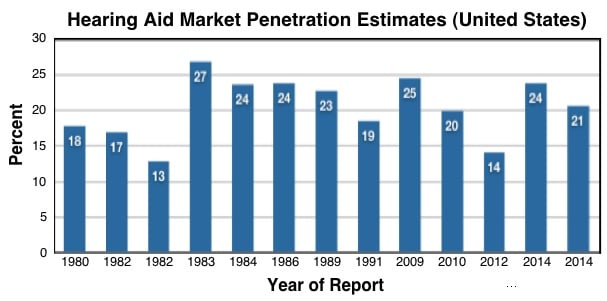A few weeks ago, my friend and blog editor, Dr. Holly Hosford Dunn posted a blog about the pros and cons of drinking coffee. I love my morning home brewed Starbucks, yet I have told many patients over the years to avoid caffeine if there was any suspicion of Meniere’s disease.
 It got me thinking. Where is the evidence? Is this unfounded conventional wisdom, or can we assure our patients that reducing caffeine will make a positive difference for them? Hmmm… Caffeine is a diuretic, and we recommend diuretics as a treatment for patients with suspected Meniere’s disease, yet we tell them to avoid caffiene. I think a little online detective work is in order.
It got me thinking. Where is the evidence? Is this unfounded conventional wisdom, or can we assure our patients that reducing caffeine will make a positive difference for them? Hmmm… Caffeine is a diuretic, and we recommend diuretics as a treatment for patients with suspected Meniere’s disease, yet we tell them to avoid caffiene. I think a little online detective work is in order.
First stop –How effective a diuretic is coffee?
I found the following Q and A on the Mayo Clinic website.
Katherine Zeratsky, R.D., L.D. is a registered dietician working at the Mayo Clinic in Rochester, MN Question: Caffeine: Is it dehydrating or not?
I’ve been seeing ads that say cola and coffee drinks hydrate you as well as water does. Is this true?
Answer: It is true. Researchers used to believe that caffeinated drinks had a diuretic effect. This means that you would urinate more after drinking them, which could increase your risk of becoming dehydrated. Recent research shows that this is not true and that caffeine has a diuretic effect only if you consume large amounts of it — more than 500 to 600 milligrams (the equivalent of 5 to 7 cups of coffee) a day. Still, caffeinated drinks can make you jittery, sleepless or anxious. Water is probably your best bet to stay hydrated. It’s calorie-free, caffeine-free, inexpensive and readily available.
Okay, so the diuretic effect of coffee is negligible.
Second stop – Are other vestibular specialists also recommending reduced caffeine intake for suspected Meniere’s patients?
In addition to other sources, I checked on the website of Dr. Tim Hain, A Neurologist at Northwestern University. His website is a major source of well researched information for both patients and professionals. I found this excerpt regarding a recommended diet:
“Avoid caffeine-containing fluids and foods (such as coffee, tea and chocolate). Caffeine has stimulant properties that may make your symptoms worse. Caffeine also may make tinnitus louder. Large amounts of caffeine may trigger migraine.”
Well, I am not tackling tinnitus today, though my other friend and blogger-colleague Bob Traynor has done so in several posts. But I did learn that nearly every source I found recommends reduced caffeine for Meniere’s patients. So, the third stop for today…
Is there evidence to support the widely held belief that there is a connection between caffeine and vestibular patients?
My background in writing articles and books leads me directly to PubMed, a clearinghouse for professional peer reviewed journal articles. I type in “caffeine” and” Meniere’s disease”, and here is what I found:
______________________________________________________________________
______________________________________________________________________.
Yes, that is two lines of nothing pertinent. But, I did run across an interesting article discussing the differential diagnosis and treatment for both Menieres’ disease and Migraine.
My thought process then steers towards wondering about Migraine patients, who are so often confused with Meniere’s patients. Is there any evidence that caffeine might trigger episodes of vertigo in Migraine patients? The above mentioned article recommends reduction of caffeine to avoid migraine symptoms.
So, this time, I check in with the Cleveland Clinic website to read up on Migraine and caffeine. Here is what I found:
“Caffeine: Excessive caffeine consumption or withdrawal from caffeine can cause headaches when the caffeine level abruptly drops. The blood vessels seem to become sensitized to caffeine, and when caffeine is not ingested, a headache may occur. Caffeine itself is often helpful in treating acute migraine attacks.”
Conclusion?
Both Migraine and Meniere’s disease treatment falls into the scope of practice of a medical doctor, usually a Neurologist or Otolaryngologist (ENT). I am neither, so I invite any reader that can offer a clearer explanation and/or some evidence that I have been unable to locate.






